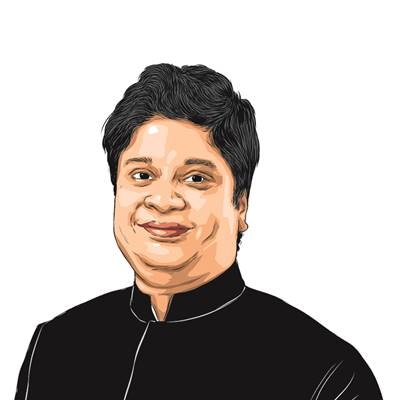Opinion The curious case of Jairam Ramesh
In order to understand why the now under fire Jairam Ramesh is so often a figure of controversy,one has to only analyse the larger context of his politics.....
In order to understand why the now under fire Jairam Ramesh is so often a figure of controversy,one has to only analyse the larger context of his politics. Jairams rise to the frontline of Congress party politics is quite unique among his peers. Unlike most other Congress notables,he didnt come up the ranks from Youth Congress/NSUI student politics. Nor did he make his way up from local,district or state level politics. He didnt even come up by that other widely used entry route of family inheritances or connections.
Instead,Jairam Ramesh spent the first two decades of his professional career,in the 1980s and 1990s,as a policy wonk. For someone who was neither a career civil servant nor a professional economist who had served time at the Bretton Woods Institutions,Jairam did well to become influential in policymaking circles dominated by people from the IAS and World Bank. In fact,as a firm believer in the merits of free markets,he played a pivotal role (along with many others) in formulating and implementing the economic liberalisation programme. It was only after he finished his stint advising then United Front Finance Minister P. Chidambaram in 1998,that he joined the Congress party on a full-time basis.
Interestingly,Rameshs path into politics is closer to the kind followed by politicians in Western democracies,particularly in the UK,where an increasing number of politicians are now coming from the ranks of the policy wonks. Messrs David Cameron,David Miliband and Ed Balls,for example,served lengthy periods as policy advisers before jumping to electoral politics.
But the transition from policy wonk to career politician is infinitely harder in India than in the UK or the US. In the UK,once inducted into the party apparatus,the policy types are instantly handed out tickets to contest parliamentary elections and thereby join the mainstream. The US,of course,has a very open political system where voters have more power than party apparatchiks. India has a relatively closed system,particularly for lateral entrants.
That makes it much harder for the new entrants with no previous political experience to carve out a political niche. And that was always going to be a challenge for Ramesh once he joined the Congress. One option for him could have been to reaffirm his economic reformist credentials within the party and use that as a USP. However,the pro-reforms faction of the Congress was already a crowded space,with leading,articulate and well respected lights like Manmohan Singh,P. Chidambaram and Kamal Nath,to name just three. However,there was more political space for bright,articulate,modern politicians on the left wing of the party. Whats more,Congress President Sonia Gandhi seemed instinctively inclined towards the left,and not right. And there began Jairam Rameshs transition from ardent reformer to cautious populist,from a man of the establishment to a crusader of the anti-establishment.
Whether one views that as opportunistic or pragmatic isnt the point. What matters is that the strategy paid dividends,and he began to rise in the Congress hierarchy,despite his consistently gaffe-prone personality. He was appointed to the Sonia Gandhi-led NAC after UPA-I came to power in 2004.
The real problem was always going to arise the moment Ramesh joined the government in a substantive role. In UPA-II,Ramesh was given independent charge of the Ministry of Environment and Forests. Finally,he had a forum and he wasnt going to waste the opportunity. He would take on what he viewed as the establishment in the Congress government,namely the PM and his mostly reformist allies,even if that meant exceeding his brief. All the time,he would still expect to land on the right side of the Congress party establishment.
Ironically though,his first high profile battle in the government saw him overturn what was old fashioned policy into a reformist one. He won his battle on Indias stand at the climate change negotiations,forcing a shift from a per capita emissions position to an emissions intensity of GDP position. In doing so he outmanouvered the PMs chosen man on climate change,Shyam Saran,who subsequently left government. He also discovered a forum in which India and China could join hands.
In an establishment dominated by China sceptics,Ramesh began to see himself as otherwise. But while Ramesh may have taken admirably liberal positions on climate change and China,he has been guilty of alarmist and paranoid policy pronouncements of his own the blanket ban on Bt brinjal contrary to all scientific evidence,his scuppering of Kamal Naths road building plans in the name of the environment and his denouncement of the foreign universities bill fall firmly into this category.
The one,perhaps only,common motive guiding all of Rameshs actions this last year has been an insatiable drive to play the insurgent against the conventional wisdom of the establishment. All of it together may have finally earned this former policy wonk the political niche he so desperately craved. But it doesnt always do much credit to the government he serves. The party may only go so far in tolerating a single ministers personal ambition. Ramesh stumbled badly in China. He may be down and out next time.
dhiraj.nayyar@expressindia.com





